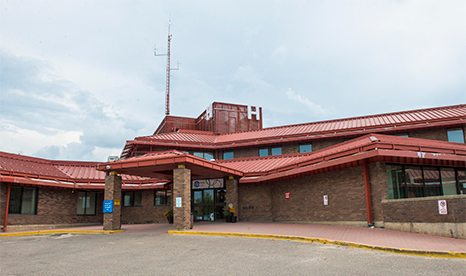Less than half of all employees at the Bonnyville Health Centre have gotten their flu shot. At 48 per cent of workers, the facility falls behind the provincial average, which is 55 per cent, and the goal of 80 per cent.
Medical Officer of Health for the North Zone Dr. Albert de Villiers says it’s important for health care professionals to get vaccinated if they can to avoid spreading the disease. That’s especially the case for those dealing with cancer patients.
“Those people are usually immunocompromised because of the different treatments they’re on, so that means their immune system doesn’t work as well. Where you might get influenza and be in bed for a day or two, maybe, and go back to work, they might not recover from it or get serious consequences.”
De Villiers says AHS relies on local employees to encourage each other to get immunized, with some units even holding friendly competitions. It’s also brought up at all meetings, as a way to remind staff of the role they play in not spreading the flu.
No provinces enforce mandatory flu shots for health care workers, and de Villiers says the idea isn’t currently on the table in Alberta. However, he sees it as a good move.
“It will probably decrease the disease, because some people get influenza in the community and they bring it over to the hospital. If I, as a staff worker, work with this patient and then I walk over to the next patient I might spread the disease because I wasn’t adequately protected.”
Other health facilities in the region are further ahead of Bonnyville, but not by much. The Lac La Biche Healthcare Centre has a 52 per cent vaccination rate, while Cold Lake is at 55 per cent and Elk Point at 58.
While there have been 10 more deaths from the flu this season in Alberta compared to this point last year, de Villiers says it’s still too early to know whether it will be worse overall. It will be hard to say until the spring, as influenza is different every year.
“Some years it hits a little bit earlier and some years we see the peak of the outbreak season in February or March even. This year it started a little bit earlier; if it continues like this we will probably see more than last year and the years before in total.”
On top of health care workers, de Villiers encourages anyone who works with clients or visitors to get vaccinated if they can. They should also make sure to cover their cough, and stay home if they are sick.




